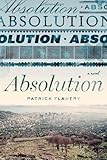 Patrick Flanery was born in California, raised in Nebraska, and in recent years has spent significant time in South Africa. His first novel, Absolution, is set there. It focuses on Clare Wald, a reclusive writer, opening up about her past to her biographer, Sam Leroux. So far, so familiar. But Flanery’s trick is to tell his tale from four varying perspectives that ultimately converge and contradict, leading us to question the reliability of the characters and the validity of their confessions. To what extent is a writer engaged in “professional lying?” How are we all complicit in the problems of the countries we live in? Can we ever fully obliterate, or atone for, our past crimes? Flanery’s debut is a fascinatingly multi-faceted novel which impresses the more it perplexes. I wanted to learn more about writer and book and so interviewed him. He was in South Africa, I in Berlin, and so the following was done by email.
Patrick Flanery was born in California, raised in Nebraska, and in recent years has spent significant time in South Africa. His first novel, Absolution, is set there. It focuses on Clare Wald, a reclusive writer, opening up about her past to her biographer, Sam Leroux. So far, so familiar. But Flanery’s trick is to tell his tale from four varying perspectives that ultimately converge and contradict, leading us to question the reliability of the characters and the validity of their confessions. To what extent is a writer engaged in “professional lying?” How are we all complicit in the problems of the countries we live in? Can we ever fully obliterate, or atone for, our past crimes? Flanery’s debut is a fascinatingly multi-faceted novel which impresses the more it perplexes. I wanted to learn more about writer and book and so interviewed him. He was in South Africa, I in Berlin, and so the following was done by email.
The Millions: First of all I have to apologize. Sam Leroux mentions his “carefully formulated questions I’ve spent months preparing.” I have only taken an hour to compile mine. Presumably before Absolution was even conceived you completed a doctorate in English Literature at Oxford University. What area did you specialize in and did it have any bearing on the novel?
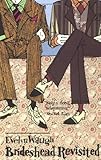
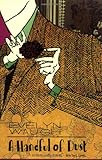
 Patrick Flanery: I went to Oxford thinking I was going to write a doctoral thesis on male friendships in the works of D.H. Lawrence, E.M. Forster, and Evelyn Waugh. When the powers that be decided the topic was not adequately “new” (in other words, they thought the work had already been done), I decided to focus exclusively on Waugh, shifting from a literary critical project to a largely book-historical one, which examined the publishing history and various media adaptations of three of his novels: Vile Bodies, A Handful of Dust, and Brideshead Revisited. My work on Waugh unquestionably had an effect on Absolution, although quite a complex one. For one thing, as a relief from my total immersion in Waugh, I began side projects on J.M. Coetzee’s publishing history, which led me to broader investigations of South African literature and culture. In contrast to Waugh, I was craving a more ethically engaged, and more resolutely secular territory to explore, and Coetzee’s work provided just such a space.
Patrick Flanery: I went to Oxford thinking I was going to write a doctoral thesis on male friendships in the works of D.H. Lawrence, E.M. Forster, and Evelyn Waugh. When the powers that be decided the topic was not adequately “new” (in other words, they thought the work had already been done), I decided to focus exclusively on Waugh, shifting from a literary critical project to a largely book-historical one, which examined the publishing history and various media adaptations of three of his novels: Vile Bodies, A Handful of Dust, and Brideshead Revisited. My work on Waugh unquestionably had an effect on Absolution, although quite a complex one. For one thing, as a relief from my total immersion in Waugh, I began side projects on J.M. Coetzee’s publishing history, which led me to broader investigations of South African literature and culture. In contrast to Waugh, I was craving a more ethically engaged, and more resolutely secular territory to explore, and Coetzee’s work provided just such a space.
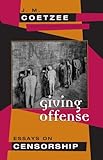 Waugh’s own minor experience of censorship also led me to wider theoretical reading about institutions of censorship, and thus to Coetzee’s brilliant and essential collection of essays, Giving Offense. That provided the spur to thinking about the writer-censor relationship in creative terms, and I began, while still finishing my doctorate, writing a series of dialogues between a writer and her biographer that explored this territory. My concentration on Waugh’s fiction, and the letters and diaries of a writer who cultivated a vividly difficult personality — one notoriously resistant to interviewers — helped inform my character Clare Wald.
Waugh’s own minor experience of censorship also led me to wider theoretical reading about institutions of censorship, and thus to Coetzee’s brilliant and essential collection of essays, Giving Offense. That provided the spur to thinking about the writer-censor relationship in creative terms, and I began, while still finishing my doctorate, writing a series of dialogues between a writer and her biographer that explored this territory. My concentration on Waugh’s fiction, and the letters and diaries of a writer who cultivated a vividly difficult personality — one notoriously resistant to interviewers — helped inform my character Clare Wald.
TM: In an interview with the Independent, it was noted that you talk more about literature than you do yourself. It is a rather facile question but an important one for a debut novelist: who are your literary idols and influences?
PF: It is among the most difficult questions to answer, simply because the influences are legion, whether positive or negative models (I like this, I don’t like this). For a novelist, though, talking about literature is perhaps one of the most revealing ways of talking about oneself. I’ll limit myself here to the influences I was most conscious of tapping while writing Absolution. These I can divide into four territories: South African, North American, Latin American, and broadly European (including British and Irish).

 The most obvious South African influence is Coetzee, whose work has always astonished me for the rigor of its control: I never have any doubt that Coetzee knows precisely the kind of work that each word does in the text. Several other South African writers were also important, including Marlene van Niekerk, Zoë Wicomb, Ivan Vladislaviċ (all three are too little known and read outside of South Africa), and the late K. Sello Duiker; Nadine Gordimer I admire greatly, although I suspect her influence functioned at a quite subconscious level. Of North American writers, DeLillo, Roth, and Didion (her essays) were important touchstones, along with Atwood (I taught Surfacing for several years and regard it as an important intertext for Absolution), as well as Mavis Gallant and the poet Anne Carson. From Latin America, Jorge Luis Borges was an early and not necessarily productive influence, but nonetheless a very potent one: an uncle who leads one astray and doesn’t pick up the bill at the end of a surprisingly expensive meal. Roberto Bolaño has been a more recent discovery: complex, complicated, and often, for me, a maddening writer, he is also a model for writing a novel (2666) that manages to be gripping at both intellectual and visceral levels. European influences are predictable: Joyce, Forster, Woolf, Conrad, T.S. Eliot (if one can call him European) and, perhaps inevitably (and as much as I might wish to disavow his influence), Waugh as well. From the continent, Proust, Mann, Kafka, Dostoevsky, and Chekhov formed a rather dour, sometimes wry chorus of support.
The most obvious South African influence is Coetzee, whose work has always astonished me for the rigor of its control: I never have any doubt that Coetzee knows precisely the kind of work that each word does in the text. Several other South African writers were also important, including Marlene van Niekerk, Zoë Wicomb, Ivan Vladislaviċ (all three are too little known and read outside of South Africa), and the late K. Sello Duiker; Nadine Gordimer I admire greatly, although I suspect her influence functioned at a quite subconscious level. Of North American writers, DeLillo, Roth, and Didion (her essays) were important touchstones, along with Atwood (I taught Surfacing for several years and regard it as an important intertext for Absolution), as well as Mavis Gallant and the poet Anne Carson. From Latin America, Jorge Luis Borges was an early and not necessarily productive influence, but nonetheless a very potent one: an uncle who leads one astray and doesn’t pick up the bill at the end of a surprisingly expensive meal. Roberto Bolaño has been a more recent discovery: complex, complicated, and often, for me, a maddening writer, he is also a model for writing a novel (2666) that manages to be gripping at both intellectual and visceral levels. European influences are predictable: Joyce, Forster, Woolf, Conrad, T.S. Eliot (if one can call him European) and, perhaps inevitably (and as much as I might wish to disavow his influence), Waugh as well. From the continent, Proust, Mann, Kafka, Dostoevsky, and Chekhov formed a rather dour, sometimes wry chorus of support.
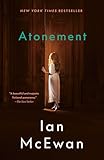
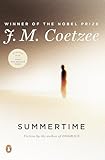 TM: Reviewers have already placed you in illustrious company, comparing you with the likes of Graham Greene and Coetzee. The former, I feel, is always lazy short-hand for any novel with tension and conflict in an exotic locale. The latter was almost inevitable — both you and Coetzee deal with professors and academics, crime and violence, and refuse to offer neat solutions to your complex themes. Summertime even features a biographer trying to unlock a writer’s life. I do see Coetzee having had some impact on you (Dusklands even gets a mention in the novel, secretly stashed away from the authorities among books by Clare Wald) but also see Absolution as a kind of second cousin to a similar-titled novel, Ian McEwan’s Atonement: the fractured narrative, the varying viewpoints, the re-imagined and alternative histories. Am I miles off?
TM: Reviewers have already placed you in illustrious company, comparing you with the likes of Graham Greene and Coetzee. The former, I feel, is always lazy short-hand for any novel with tension and conflict in an exotic locale. The latter was almost inevitable — both you and Coetzee deal with professors and academics, crime and violence, and refuse to offer neat solutions to your complex themes. Summertime even features a biographer trying to unlock a writer’s life. I do see Coetzee having had some impact on you (Dusklands even gets a mention in the novel, secretly stashed away from the authorities among books by Clare Wald) but also see Absolution as a kind of second cousin to a similar-titled novel, Ian McEwan’s Atonement: the fractured narrative, the varying viewpoints, the re-imagined and alternative histories. Am I miles off?
PF: When Summertime appeared I already had the foundations for Absolution; I knew it was going to be about a novelist and her biographer, and I knew it was going to have a fractured, fragmented form. I also knew that if my own novel were ever published, people would inevitably see a line of descent. I won’t deny Coetzee’s influence, but as I suggest above, he is one of a great many writers with whom I like to think my own work might be in conversation. McEwan is an intriguing comparison. I admire Atonement, and perhaps it, like Gordimer, was lurking in my subconscious: in a way, Absolution takes the next logical step in form where Atonement leaves off. I started with large, discrete sections, as in McEwan’s novel, but felt, for my own purposes, that the story I was trying to tell needed a form, a shape, and a rhythm that was more dynamic, shifting, and urgent. Some reviews, I know, have described the novel as a kind of “literary thriller,” and it would not be inaccurate to say that I was conscious of wanting to endow the events of the novel with a certain quality of pace and suspense more usually found in genre fiction.
TM: Early on in your novel, Sam poses a question about fiction being necessary to political opposition. Clare laughs at him and replies with “You have a very strange idea of what fiction is meant to do.” What is fiction meant to do?
PF: The temptation is to answer your question as Clare would, to tell you that fiction, even under conditions of oppression, has a different role to play, that it need not only be social realism reporting on the conditions of the oppressed, involving itself in a struggle for liberation, but that it can perhaps play a part in such battles even while its role, its position, and its effects are not necessarily legible, or may only be legible in retrospect, when the field has cleared and the dead have been buried, the treaties agreed, and history lurched into its next cycle.
But that is what Clare would say.
My own feeling is that fiction in a broadly social realist form has a place in the larger body of any given national — or indeed transnational — literature. Absolution is certainly not social realism, although it does attempt to engage certain aspects of the current and highly varied social realities at play in South Africa. Such moments of social realism are, however, contained in a text that might more accurately be described as subjective or critical realism, with layers of the surreal, the nightmarish, the apocalyptic, the confessional, and the biographical.
Fiction that aspires to be something more than an entertainment commodity must, I think, ultimately be concerned with its own longevity, with the conversation it holds between itself and whatever has preceded it.
TM: As you suggest, the novel began as a series of exchanges between characters on the issue of censorship. Only later did South Africa present itself as a setting. How did this come about?
PF: While writing the initial censorship dialogues between Clare and Sam in 2005, I was also writing the first draft of the narrative of Clare’s “house invasion,” as she insists on calling it, alongside a post-apocalyptic narrative of a woman looking after a young boy. I did not, initially, know how this third narrative related to the other two, but I sensed that they all belonged together. For a time I thought I might set the book in a near-future California, but the more I wrote of the three primary sections, the more I was just conscious of a landscape that recalled what I already knew of South Africa’s Western and Eastern Cape Provinces from visits with my South African partner to family and friends. Unsure what to do with this odd triptych of texts, or how to make them advance, I put the book aside.
Years passed, I finished my doctorate, I returned for further visits to South Africa, and continued to think of Clare, knowing that I did not want to abandon her. I began thinking again about the setting, dismissing America as the wrong location for the story I was trying to tell, and thinking instead of an unnamed, semi-allegorical African or South American country, before finally concluding that the book needed a highly specific temporal and geographic context to make the story both more resonant, as well as to provide the kind of narrative the characters needed to move forward from their quite static positions. Once I settled on South Africa as the setting, the various problems of character, narrative, and form all began to fall into place. Unraveling the three novellas, I started weaving them together, while adding a fourth strand — those sections which bear dates in the novel — that seemed to bind together the first three.
Journalists have asked me what kind of challenge the decision to set the book in South Africa represented. It was significant, and one I did not take lightly. My experience of South African domestic space (through visits with my extended family and friends in the country), and the reality of living every day of my life over the last decade with a South African partner, meant that I had a certain kind of access to a quite particular strand of South African cultural life — largely white, English-speaking, and middle-class. So the daily details, the language, and the cadences of speech were not the most difficult aspects to negotiate; rather, it was making sure that the complexity of certain relationships and lines of inheritance made sense in a way that was at once possible to fit into a plausible strand of South African history, while also being conscious that history (however one might wish to define it) need not necessarily function as the benchmark against which the events of the book might be measured.
TM: You write about contemporary South Africa and adopt a fairly non-judgmental stance. Only once does Sam lose his cool with a person begging. Clare is traumatized by that break-in but doesn’t call for tougher laws and stricter punishments. Was it a conscious decision to be the aloof outsider looking in? Is it a writer’s ‘duty’ only to reflect and never comment on a country’s social or political situation?
PF: At no point did I think that I was writing a critique of the country, although I would argue that there is a considerable amount of commentary about the unresolved legacies of apartheid. I was always trying to tell a story that, as I suggest above, started from large, perhaps “universal” themes, and worked backwards in its composition, from the broad to the specific, from the universal to the local. Equally, while I was conscious of the particular challenges I set myself in writing about a country not my own — a country whose literature has long been informed by a sense in some quarters that South Africans should tell their own stories — I did not think of myself as an outsider looking in. In his review of the book in the Mail & Guardian, the South African critic Michael Titlestad refers to me as an “insider outsider:” it is an apt and flattering description, I think, and one I am happy to embrace. I tried to write from a place as thoroughly within the country as I could manage.
To “reflect” a country’s social or political situation suggests that there is one coherent narrative of what that situation might be, and also that it is the job of fiction to be “reflective.” Absolution tries to destabilize such ideas, to argue that there are many simultaneous, competing narratives, not only about traumatic events of the past, but also about the way in which the everyday life of a country unfolds. Sam’s account of his encounters with people begging would not, inevitably, match their own versions of the same interactions; had I chosen to give such characters voice beyond the limited dialogue Sam reports, they would have narrated the story in a markedly different way.
Rather than “reflective,” I think of my own fiction as “discursive:” in a dialogue not only with literary tradition, but also with the world it seeks to describe.
TM: You have said that South Africa is “the most and least like America” of any country you have visited. Please explain!
PF: Before I first visited South Africa in 2003, I imagined it in terms of apartheid, its European colonial past, and those circuits of cultural affiliation, and, in a shamefully under-nuanced way, as an “African” country. The first visit immediately complicated all of those assumptions.
Visiting Cape Town and its surrounding communities, one cannot but be aware of Dutch and French (Huguenot) influences, both in terms of architecture and place names, while in a town like Grahamstown, in the Eastern Cape (where I sit as I respond to your questions, in the Victorian house of a friend), the influence of 19th-century English settlers is inescapable. Nonetheless, “modern” South Africa — meaning both the modernist buildings and infrastructure built in the second half of the 20th century under apartheid, and the largely post-modern buildings of democratic South Africa — often looks startlingly American. Many buildings and neighborhoods would seem at home in America in a way they would never fit in Britain or the Netherlands. Stylistically, spatially, and in terms of scale, South Africa feels more North American in its register than it feels European, except, perhaps, in places like Stellenbosch or the Karoo town of Graaff-Reinet, where the Cape Dutch architecture predominates; even in those towns, however, it is always possible for me to imagine myself into Southern California (in the case of Stellenbosch; I see similarities with Spanish mission architecture), or parts of the Midwest and Southwest (in the case of Graaff-Reinet). There is an expansive sense of space and possibility in the urban as well as rural landscapes of the country that feels utterly familiar to someone who grew up in Omaha with family ties to Oklahoma and California. So on the level of the built environment, as well as some aspects of the landscape (although not the vegetation), the country feels familiar to me.
The differences, however, are as numerous as the similarities, and not just because of the obvious reason that this is an African country. It is culturally, linguistically, and socially complex in ways that America is not. However unfinished the process of reconciliation and truth telling may be, South Africa has engaged in a dialogue about the past that America has failed to do in the same way. Imagining an American Truth and Reconciliation Commission to investigate racial atrocities, the legacies of slavery, and the much longer and profoundly unexamined treatment of American Indians, is all but impossible because those invested in maintaining the status quo, in not unearthing the truth of America’s past, are, I fear, far too powerful.
TM: At one point Clare announces to Sam in a letter: “You see how unreliable I am.” Sam is also an unreliable narrator — in one scene he realizes the life-story he is presenting to his wife, Sarah, is based on events and experiences from Clare’s books. Even maps are described as “a tracery of lies.” Was it your intention to disorient your readers and have us constantly uncertain of which characters to trust?
PF: The point was not to disorient readers, although I acknowledge that the initial reading experience may sometimes be one of disorientation, at least in part. Rather, the characters’ so-called unreliability (perhaps it would be better to speak of the mutability of truth in the novel), functions as a formal manifestation of the ways in which trauma produces multiple narratives, or multiple truths. South Africa’s Truth and Reconciliation Commission sought to provide a forum for different forms of truth (“factual or forensic truth; personal or narrative truth; social or ‘dialogue’ truth…and healing and restorative truth”), acknowledging the ways in which such ostensibly competing truths may coexist. I hope that, to some extent, Absolution suggests the ways in which there can be, particularly in the case of a traumatic event, a multiplicity of possible truths.
One of the signal traumatic events from Sam’s past is the death of his uncle, and Sam’s negotiation of that memory produces more than one version: the memory is fractured, fragmented, shifting, entirely unstable, as if viewed through a prism. In the case of Clare, her manipulation of the narrative of her own life, and those she loved, serves a different purpose: it represents a struggle to negotiate the boundary between her public and private selves, to protect and defend those territories she regards as beyond the reach of public interest. Her intention, certainly, is to disorient Sam, the man she has, ironically, appointed to write her life, to keep him on shifting ground, as much as his mode of questioning her has a similar intent.
TM: Absolution is immensely intricate and must have required the tightest plotting — so much so that you can’t possibly be a spontaneous make-it-up-as-you-go-along writer. How much of it all did you plan in advance?
PF: I planned almost nothing at first, and that is, perhaps, why it took me six years to finish. As I approached the final drafts of the book, I did begin to have a clearer sense of where it was going, but I did not know how it would end until I wrote the final sentence.
For my second novel, however, I have worked from an outline. While it provided a loose structure that I ultimately revised, reworked, and then abandoned, having that map helped to focus the work, allowing me to write a complete draft in 10 months. It was certainly a much more efficient and less frustrating way to work.
TM: How and when do you write? Do you set yourself a daily word-count target? And how difficult is the creative process?
PF: After years believing that writing was about waiting for inspiration to strike, I realized I would never finish a book on such terms. Now I try to be at work by nine each weekday morning, work until noon, take an hour’s walk, eat lunch, return to work for the afternoon. It is, in this sense, a 9-5 job that sometimes intrudes into the evening and weekends. I try to write a minimum of 1,500 words each day, although with the second novel that rose to 2,500. The initial writing is rarely difficult: the tap flows freely. The challenge is regulating the temperature, the force, and finding ways of containing and shaping what emerges.
TM: Clare states that biography is “cannibalism and vampirism.” Many a debut novel draws heavily on the author’s life to date. How much of yourself did you cannibalize for the novel?
PF: Everything and nothing.
TM: You have one great novel under your belt. What are you working on now?
PF: I’m in the midst of revisions on the second novel, which will be finished in the next few months. Although set in contemporary suburban America, it shares some preoccupations with Absolution. Themes of dispossession, of inheritance, and of the vulnerability of domestic space are again present, although explored in quite different terms. It is very much a novel of and about the uncanny, the unhomely home, surveillance, and the complications, costs, and elusiveness of the American dream.








